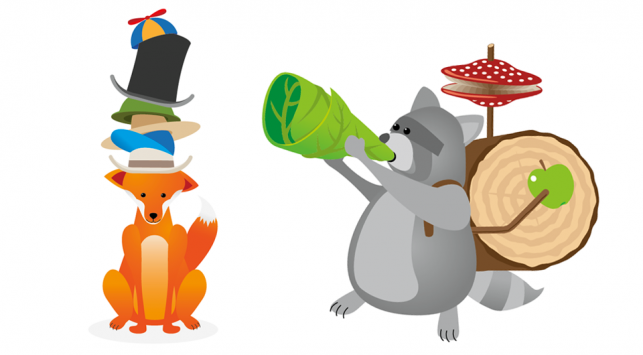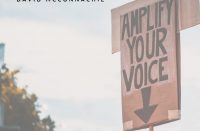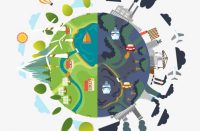Structural changes in the labour market since the economic downturn of 2008 have resulted in a work reality that society is grappling to define.
Structural changes in the labour market since the economic downturn of 2008 have resulted in a work reality that society is grappling to define.
Millennials, the best-educated generation in Canadian history, have struggled to obtain suitable employment. The youth unemployment rate for Canadians ages 15 to 24 was 13.2 per cent in July 2014. That number doesn’t include rampant underemployment that sees educated young Canadians stuck in down-market service jobs well after graduation.
This is a working world no longer governed by our parents’ labour laws. Most young Canadians will never work for a union or receive benefits and a pension. In fact, fewer and fewer Canadians of all ages receive such perqs.
Canadians are willingly – or otherwise – embracing part-time work. In the past year, 20,000 full-time positions were lost in Canada, replaced by 50,000 part-time jobs. During the same period, there was an increase in new business starts, with sole proprietorships constituting a significant portion of those entrepreneurs. More and more people are calling themselves self-employed.
When life deals you sour statistics, turn the numbers into a pathway to the life you want to live.
South of the border, freelance workers now comprise a third of the workforce. Temporary workers, contractors, and sole business-owners, are expected to grow within the next decade, according to the US organization, MBO Partners and the Freelancers Union. Freelance numbers skew even higher for younger workers.
Now matter how you spin the numbers, the fact that temporary work is on the rise is irrefutable.
But you have a life to live, and rent (or a mortgage) to pay.
When life deals you sour statistics, turn the numbers into a pathway to the life you want to live.
One of the wonderful things that part-time, freelance, contract, temp or sole proprietorship enables is the ability to work on things that truly engage you, even if it’s just part of the time. And that’s more than you can say for a lot of full-time work.
You might even find yourself in the enviable position of creating an artisanal life, a life that you have created for yourself, based on your own belief system, while earning the money you need to feed yourself (and, maybe, a few dependents). An artisanal life is one handcrafted lovingly by you. (Thank you to Susannah Spearin, of Wildrose Magnolia, an eco-friendly cosmetics company, for coining the term, artisanal life, during our discussions on entrepreneurship.)
Such a life is multi-faceted, challenging, and rewarding. It takes many skills, and a wide variety of knowledge to pull together a career that is both fulfilling and sustainable. Some in-depth knowledge can be called upon for expertise when required, while a variety of skills provide diversification, a hedge, on job market risk. The right blend of expertise and variety may provide the right balance of risk and return for your career portfolio.
In antiquity, such a life would be one lived by a polymath. A polymath, Greek for “having learned much,” could draw on diverse bodies of knowledge to perform different functions in society. Not coincidentally, polymaths like Da Vinci, Galileo and al-Haytham, contributed to a wealth of scientific discoveries through the integrated knowledge they were able to apply to problems of the day.
But as knowledge grew, information expanded exponentially, and specialized knowledge and skill areas also increased. The reign of the polymath gave way to the splintering of knowledge and the drive toward specialization. Over the same period of time, our planet has become dirtier, hotter and increasingly imbalanced.
We can certainly use another Renaissance.
Enter stage right: you. Eco-Polymath Inc. Artisanal you. With your handspun career, of skills, knowledge and creativity, carefully crafted to address the challenges that concern you most. Using integrative skills and knowledge has been an advantage in every era but never more so than today. Innovation theorists say that governments, corporations and citizens need to be more balanced – right- and left-brained, integrative – in order to truly address the problems we face today. To craft a career that addresses the most pressing challenges faced by society, and institutions of the day, approach your career as polymaths did in the renaissance and early antiquity.
An environmental education is a modern take on a renaissance education; an introduction to life as an eco-polymath.
Those of you who have an environmental education have been taught how to be in the world, how to connect and partner with others to achieve a goal, how to synthesize disparate worldviews and consider innovative possibilities as solutions. Just as a liberal arts education is said to be a rock in the foundation of liberty in democratic societies, so too has an environmental education become a core element of societal resilience. This education is a modern take on a renaissance education; an introduction to life as an eco-polymath.
This series will explore different walks of the eco-polymath life. Some eco-polymaths interviewed for upcoming articles have raised environmental awareness through their art. Others, through their integrative, interdisciplinary approach to climate change research. In all cases, their paths are creative, courageous, and rooted in a deep commitment to the planet’s well being.
Renaissance humanism is predicated upon the limitless capacity that a person has, when empowered. As an eco-polymath, you can embrace and apply the knowledge and skills needed to address the questions you want to be working on, if only, at first, on a part-time basis.
Read part two, Mythmaking: The Movement Needs Muses
Subscribe now for Milijasevic’s full essay on the value of an environmental education in the Education issue.
5912
Natasha Milijasevic is a Toronto-based management consultant whose practice focuses on projects, processes, data, and how organizations can measure these to improve their social impact. Her past research and publications span group psychology to business strategy.
Wife, mother of two and occasionally exhibiting artist, Milijasevic also loves school: she has a BSc, MBA, PhD, and is going back for another one in health care analytics. Her degrees and consulting experience have taught her how to think about complex organizational and technology problems, but the perennials and butterflies in her garden help her to stop thinking about them.












